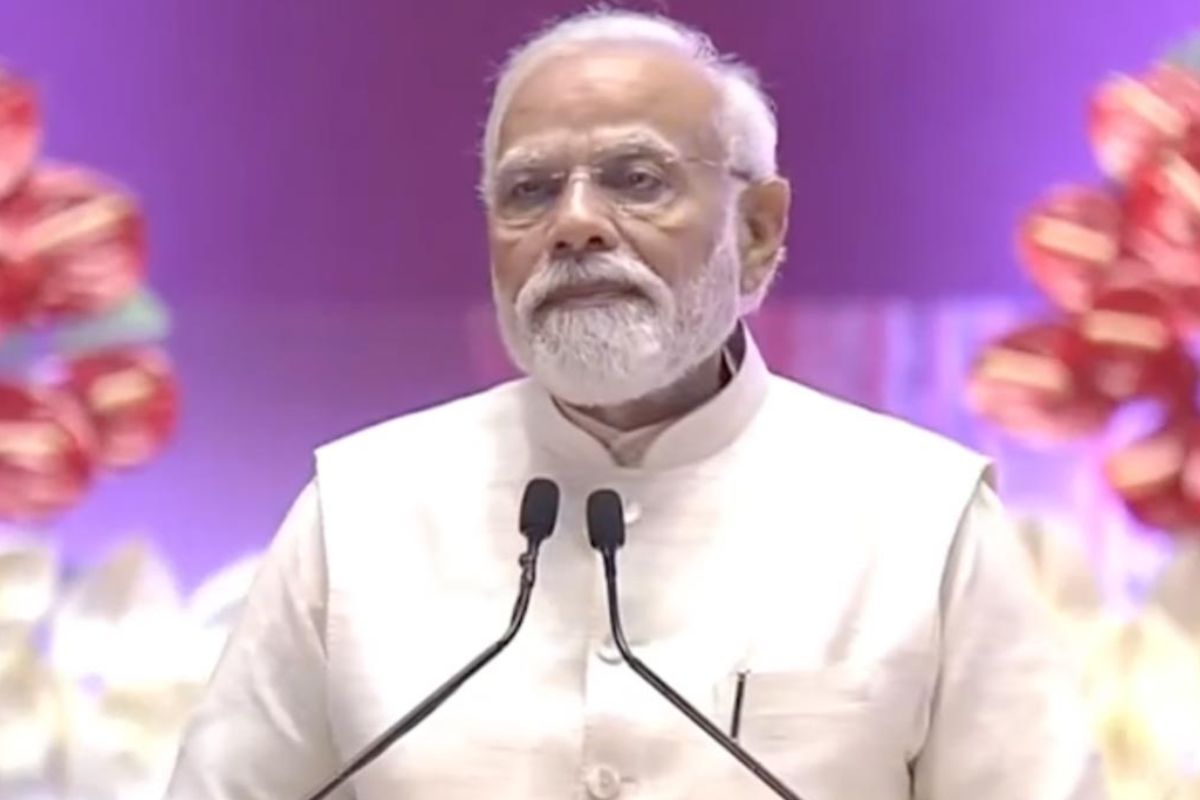Relationship between India-Bangladesh people cordial: BGMEA president Mahmud Hasan Khan Babu
Babu highlighted the similarities between the culture of West Bengal and Bangladesh, due to which the relationship between both countries is "good".
During the National Handloom Day Celebration at Bharat Mandapam in Pragati Maidan, Modi announced that the government was working with a clear strategy to provide the world’s biggest market to its weavers.
Statesman News Service | New Delhi | August 7, 2023 4:30 pm

Observing that the country was witnessing a new revolution for ”Swadeshi”, Prime Minister Narendra Modi on Monday announced that the government was working with a clear strategy to provide the world’s biggest market to its weavers.
Major companies in the world were now coming forward to take the products of India’s MSMEs, weavers, artisans and farmers to the markets across the world, he said and referred to his discussions with top leaders of several such firms who have big stores, retail supply chains, online presence and shops across the globe.
Advertisement
Modi mentioned that big companies have now resolved to take local products of India to every nook and corner of the globe. “Be it millet or handloom products, these big international companies will take them to the markets across the world,” he said. He emphasised that the products will be made in India and the supply chain will be used by these multinational companies.
Advertisement
The PM was addressing the National Handloom Day Celebration at Bharat Mandapam in Pragati Maidan, New Delhi today after launching the e-portal ‘Bhartiya Vastra evam Shilpa Kosh – A Repository of Textiles & Crafts’ developed by the National Institute of Fashion Technology.
“The India of today is not just ‘Local for Vocal’ but also providing a global platform to take it to the world,” Modi said. Highlighting the ”Swadeshi Movement”, he said that it was not confined to boycotting foreign-made textiles but a source of inspiration for the independent economy of India.
It was a movement to connect the weavers of India with the people, and this was the inspiration behind the government choosing this day as National Handloom Day. In the last few years, the PM noted that unprecedented work has been done for the expansion of the handloom industry as well as the weavers. “There is a new revolution in the country about Swadeshi,” Modi remarked. He expressed pride in the success of India through the achievements of its weavers.
Noting that India’s textile industry was well-founded in the past centuries, Modi lamented that no concrete efforts were made to strengthen it after independence. “Even Khadi was left in a moribund state,” he said, adding that those wearing Khadi were looked down upon. After 2014, he said the government was striving to change this circumstance and the thinking behind it.
He recalled urging the citizens to buy Khadi products during the early phase of his ”Mann Ki Baat” programme which resulted in more than a three-fold rise in the production of Khadi in the last nine years.
The PM expressed satisfaction that the schemes implemented for the textile sector were becoming a major means of social justice as he pointed out that lakhs of people were engaged in handloom work in villages and towns across the country. Noting that most of these people come from dalit, backward, pasmanda and tribal societies, the PM said that the efforts of the government have led to an increase in employment in large numbers along with a boost to income.
He recalled his association with the weavers of Gujarat and also highlighted the contributions of the handloom industry of the entire Kashi region which was his constituency. Speaking about the ‘One District One Product’ scheme, he said that special products from every district were being promoted. “Special stalls are also being set up at railway stations of the country for the sale of such products,” he said.
About the GeM Portal or Government e-Marketplace, he said that even the smallest artisan, craftsman, or weaver can sell their goods directly to the government and informed that about 1.75 lakh organisations related to handloom and handicrafts are linked to the GeM portal today. “Efforts are on to ensure that our brothers and sisters in the handloom sector get the benefits of Digital India”, he added.
Advertisement
Babu highlighted the similarities between the culture of West Bengal and Bangladesh, due to which the relationship between both countries is "good".
A revolution is taking root on the soil of India, one that will not only be recorded in the annals of statistics but will resonate in the heartbeats of millions.
Inspired by India’s first Digital Nomad Village, recently launched in Sikkim’s Yakten, stakeholders in north Bengal’s tourism industry have begun exploring similar possibilities across the region.
Advertisement
